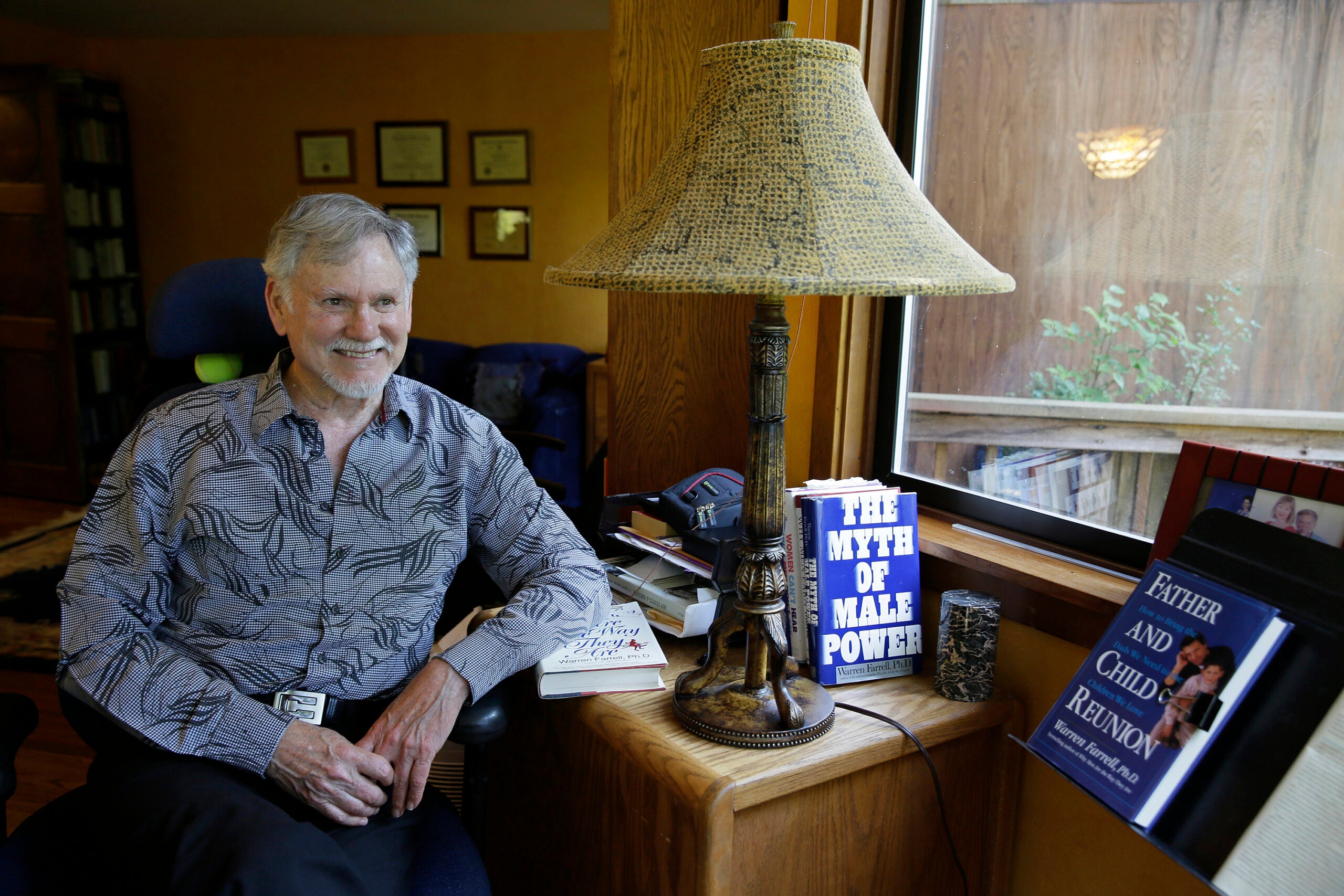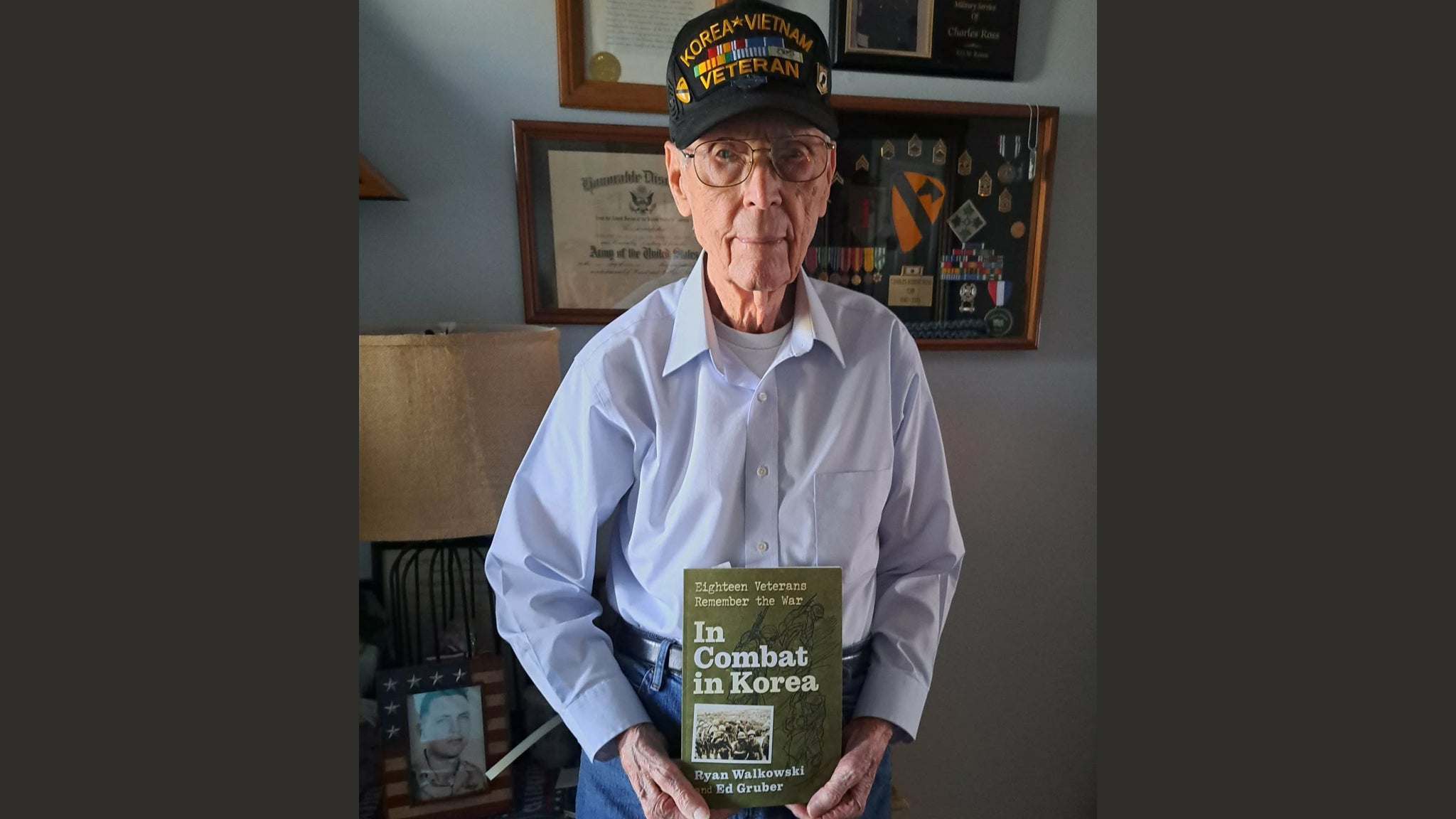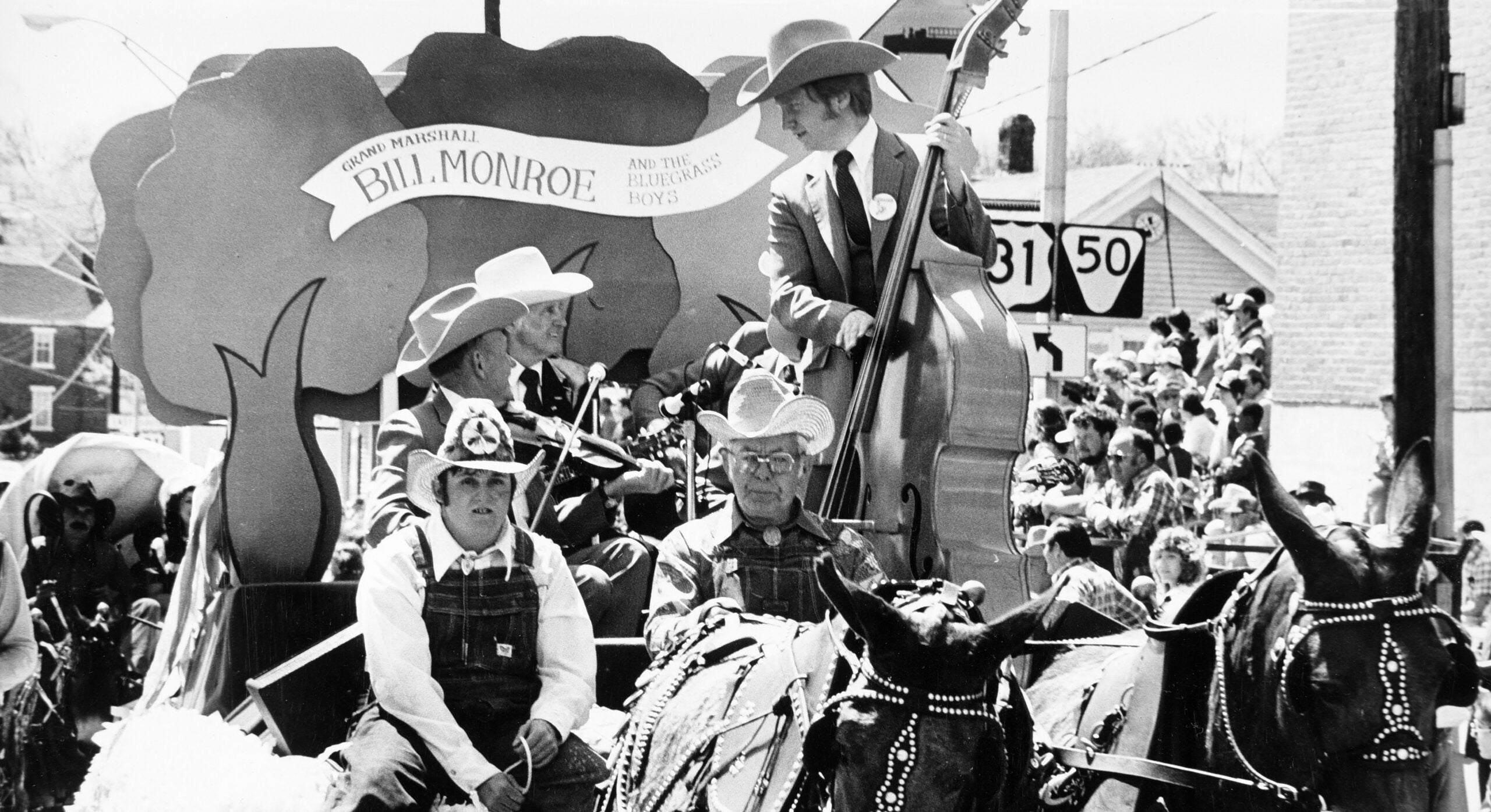Warren Farrell, a prominent men’s rights activist, is often cited in online forums where men complain about their legal and cultural disempowerment.
Farrell’s 1993 book “The Myth of Male Power” is considered the guiding text for these aggrieved men, a kind of male counterpart to Betty Friedan’s 1963 “The Feminine Mystique.”
Parts of the men’s movement are filled with anti-feminist diatribes and denunciations against women seen as manipulative and emasculating. So it may come as a surprise to meet Farrell, a soft-spoken man in his early seventies who once worked closely with Gloria Steinem, a prominent women’s rights activist.
News with a little more humanity
WPR’s “Wisconsin Today” newsletter keeps you connected to the state you love without feeling overwhelmed. No paywall. No agenda. No corporate filter.
Farrell is aware of the misogyny and violent rhetoric that ripples through the men’s rights movement, but he said there’s tremendous pain beneath this anger, pain we must acknowledge to draw out the venom of toxic masculinity from our culture.
The following Q&A comes from a longer conversation with Farrell, edited here for clarity and length.
Steve Paulson: You are commonly called the intellectual father of the men’s rights movement. What do you see as the goal of this movement?
Warren Farrell: The men’s rights movement in its current form is like someone who’s been shouting to be heard for 30 years and has not been heard. When people shout to be heard, they get hurt, they get mean, they distort, they do anything to get attention.
And many people in the men’s rights movement are highly intelligent and thoughtful. Other people in the men’s rights movement feel that women have gotten a lot of opportunities that men don’t have. And because no one is listening and giving them credence, they are often shouting just to get the attention.
SP: There is a nasty side to all of this. One reporter has called it “an army of misogynists,” and there are a lot of trolls on the internet. So you’re not discounting that. You’re acknowledging it’s there.
WF: Yes. First of all, it isn’t an army, but many people in the men’s movement are so hurt, in such pain, that they’re shouting out. And when people don’t get heard, as in any relationship, they start getting meaner and meaner, and angrier and angrier, and saying things that are in the extreme.
The first need of all people is to be heard. So if we want to do the best we can and hear everyone, instead of saying ‘trolls’ or ‘an army of,’ let’s say, ‘What are they trying to say that we aren’t hearing?’
SP: Where does the current political scene fit into this? Some of these ideas are getting played out within the White Nationalist Movement, what’s been called the ‘alt-right.’ A certain kind of hyper-masculinity has surfaced, which clearly seems to be part of this movement’s appeal, and also seems related to Donald Trump’s election. What do you make of the ascendancy of this particular culture?
WF: I think the ascendancy of the Trump-type of era is explained by boys and men who have felt unheard and now feel that somebody is speaking like they speak… And so they can say, ‘OK, if a billionaire who’s really successful is speaking like I’m speaking, maybe I have something to say, and maybe I should be heard.’
I worked very, very hard with top advisors in the (Hillary) Clinton campaign to ask them to open up an avenue for boys and men to be heard, to acknowledge that there is a boy crisis, to acknowledge that there is a crisis of fatherlessness, and to say how important it is to keep fathers in the family.
I’m afraid that was not heard by Hillary Clinton. I’m a strong supporter of her. But yet she left open this enormous hole that she was not willing to go into and deal with. So we got a boy in the White House. Any mother training her son to be an emotionally intelligent boy is training her son to be different than the person who will be our next president. That’s deeply, deeply sad. But we have gotten what we’ve neglected.
SP: But what about those men who clearly are misogynistic – let’s say at a men’s rights conference or online – who say nasty things about women. Do you feel it’s your responsibility as one of the intellectual leaders of this movement to speak out and say, ‘Hey, this is wrong. Stop it.’
WF: My first response to all misogyny or misandry … my first response is to listen. When you hear somebody — especially if you say, ‘What I heard you say was this,’ and it’s an accurate reflection of what they’re saying — then you begin to lower their temperature to what they’re really feeling and how they’re really hurting.
Because any man who speaks like that is also being self-destructive. And once I hear him, I want to be able to share other perspectives that allow him to see something different once he’s not in anger mode.







